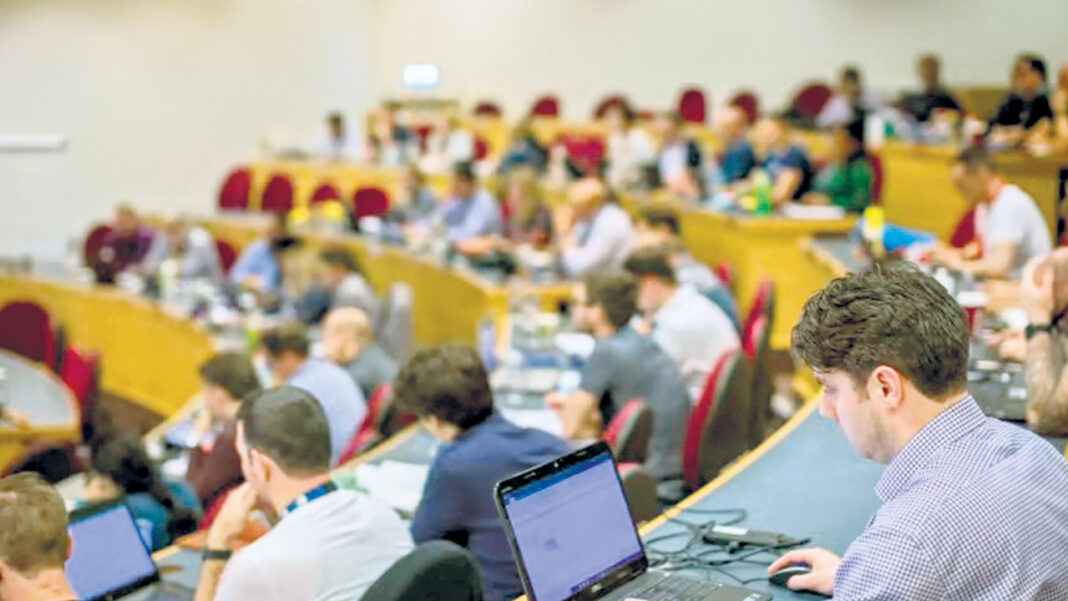AVENUES: ‘How an MBA in Enterprise Management helps in adapting to shifting global realities’
– Prof. Allen Prabhaker Ugargol, Associate Professor of Practice, IIM Bangalore

An MBA in Enterprise Management is one of the most valued and sought after course for mid-career managers who invest their time and effort to re-engage in classroom and didactic learning to supplement their varied work experience and find meaning and direction to not only seek promotions or higher wages but often to move across specialisms, sometimes even sectors, to refresh their careers with renewed vigour.
Many of these mid-career professionals also come across start-up ideations and find resonance and application within similarly wired cohorts at B-schools. As business and the contexts within which they thrive is transforming at a rapid pace, B-schools are in the race to develop cutting-edge innovations in programs and pathways to address the challenges that today’s working professionals face.
An MBA in Enterprise Management offers to complement the excellent functional knowledge and experience that mid-career managers possess with contemporary management knowledge, thereby preparing them to manage greater responsibilities in a liberalized and globalized economy with contexts that mirror the consensus for more ethical and responsible businesses.
As organisations grapple with continued complex change and disruption, industry is demanding more than ever that its leaders are equipped to face these challenges with confidence. While the traditional format of employees working in traditional office spaces is giving way to several permutations of the work-from-home option, Indian B-Schools are cognizant and are taking steps to position an MBA in Enterprise Management’s in terms of perception of value for money, offering considerable career support and provisioning for inclusivity and diversity in management education.
The complexities of today’s world are also shaping the consumption of electives being offered and subscribed to within an MBA and it is an obvious indication that courses reflecting today’s disruptive global and business reality are popular among students alongside traditional offerings.This is quite natural as leaders of today are expected to be resilient, adaptive and bearing broad encompassing knowledge and interests that would enable them to keep abreast and continually address challenges in ever-changing contexts.
The focus of today’s B-school education is bound to change to keep itself on a continuum of growth and expansion of horizon.
The benefits of cross-cultural perspectives, international exposure, of diversity and inclusivity while preparing future industry leaders are vital and pronounced. The need for preparing students to comprehend and respond to altered realities, organisational complexities call for adaptive and experiential learning where active-learning is supplemented by practical exposure to real world problems and real-life applicability.
Curriculum shifts towards improved business communication, soft skills, interpersonal skills, culture-sensitivity alongside emerging skills such as data science, AI, blockchain, etc. will be vital for transformative growth of MBA grads who can cater to future business needs.
We therefore see shifting global business cues redirecting and reshaping MBA programs across B-schools with the net result being an industry-oriented curriculum and pedagogy that imparts key takeaways for self-growth, self-realization, contextual clarity, business agility and building acumen for an ever-shifting global workplace.
Source: The Pioneer


